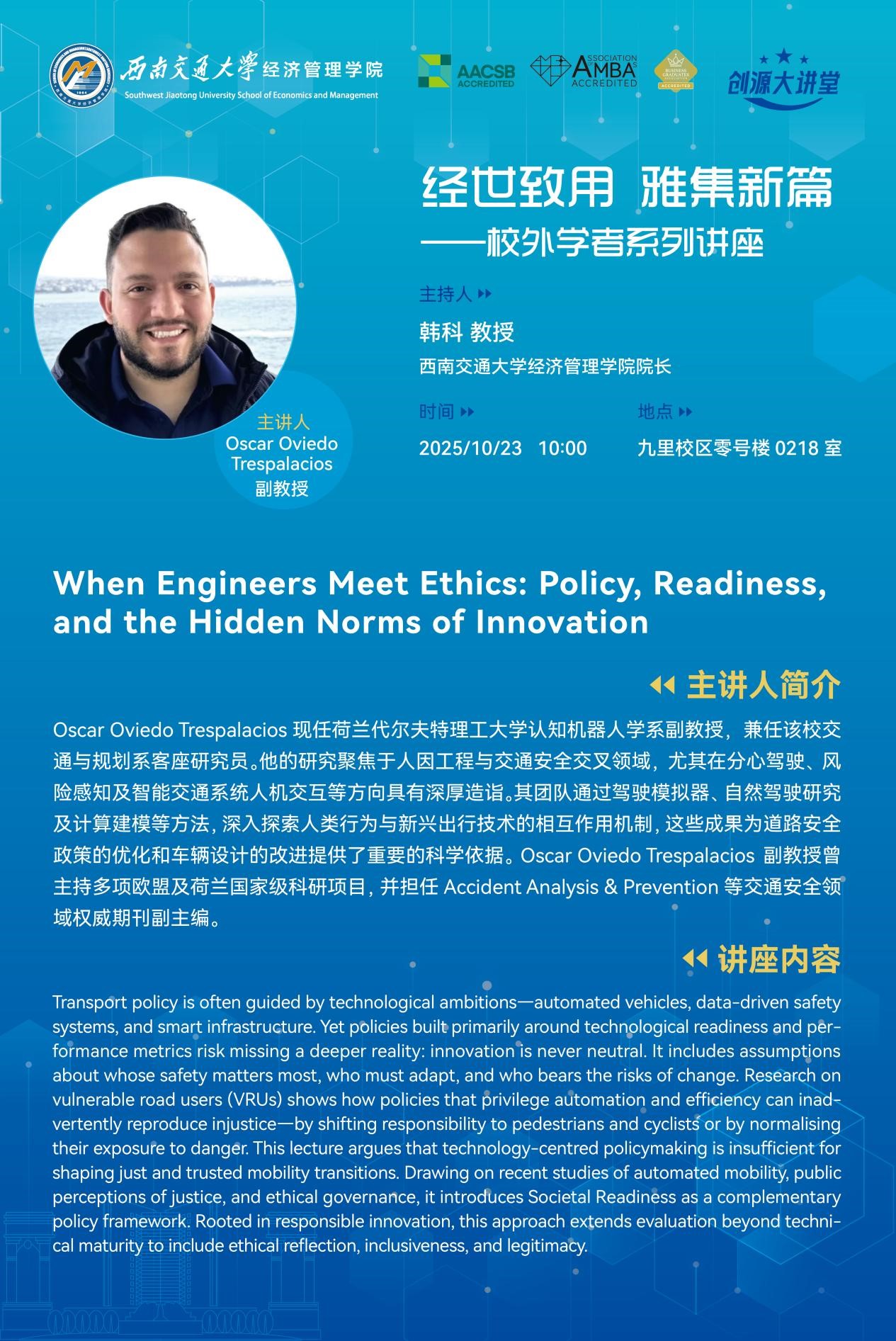Speaker Profile
Oscar Oviedo Trespalacios is an Associate Professor in Department of Cognitive Robotics at Delft University of Technology, where he also holds a position as a Guest Researcher in Department of Transport and Planning.
His research lies at the intersection of human factors engineering and transport safety, with particular expertise in distracted driving, risk perception, and Human-Machine Interaction (HMI) for intelligent transport systems. Using methods such as driving simulators, naturalistic driving studies, and computational modeling, his team investigates the interplay between human behavior and emerging mobility technologies. These findings provide a critical scientific basis for enhancing road safety policies and advancing vehicle design.
Professor Oviedo Trespalacios has led numerous research projects funded by the European Union and the Netherlands, and he serves as an Associate Editor for leading journals in the field of transport safety, including Accident Analysis & Prevention.
Abstract
Transport policy is often guided by technological ambitions—automated vehicles, data-driven safety systems, and smart infrastructure. Yet policies built primarily around technological readiness and performance metrics risk missing a deeper reality: innovation is never neutral. It includes assumptions about whose safety matters most, who must adapt, and who bears the risks of change. Research on vulnerable road users (VRUs) shows how policies that privilege automation and efficiency can inadvertently reproduce injustice—by shifting responsibility to pedestrians and cyclists or by normalising their exposure to danger. This lecture argues that technology-centred policymaking is insufficient for shaping just and trusted mobility transitions. Drawing on recent studies of automated mobility, public perceptions of justice, and ethical governance, it introduces Societal Readiness as a complementary policy framework. Rooted in responsible innovation, this approach extends evaluation beyond technical maturity to include ethical reflection, inclusiveness, and legitimacy.
Date/Time: October 23, 10:00 a.m.
Venue: Room 0218, 0 Teaching Building, Jiuliu Campus


